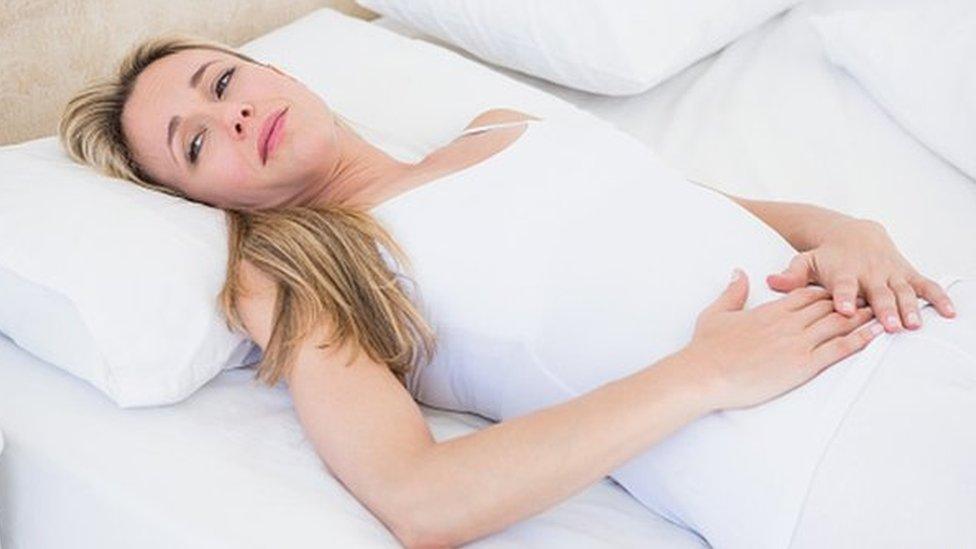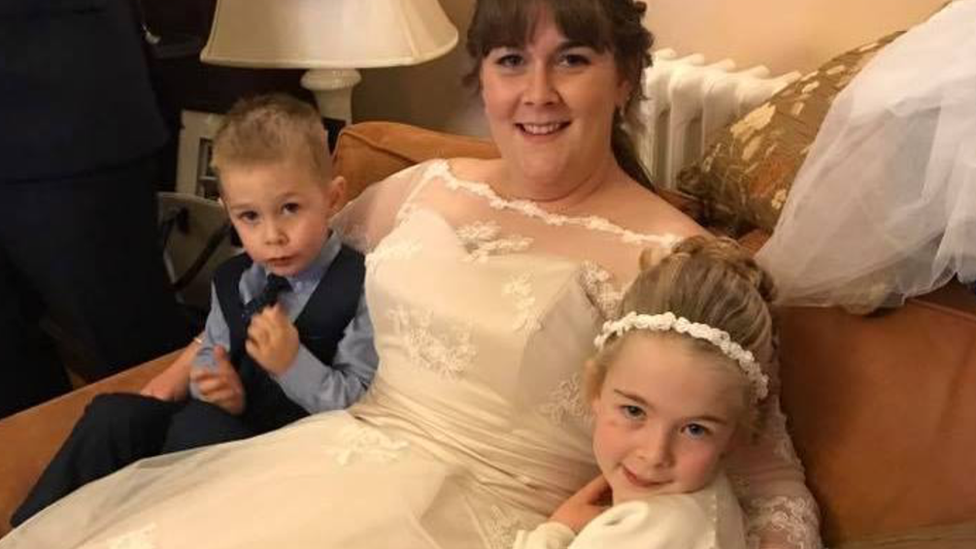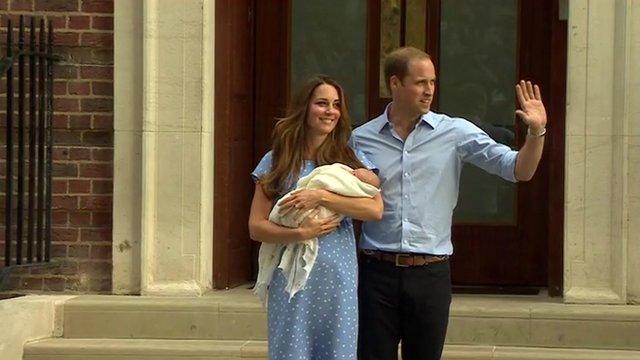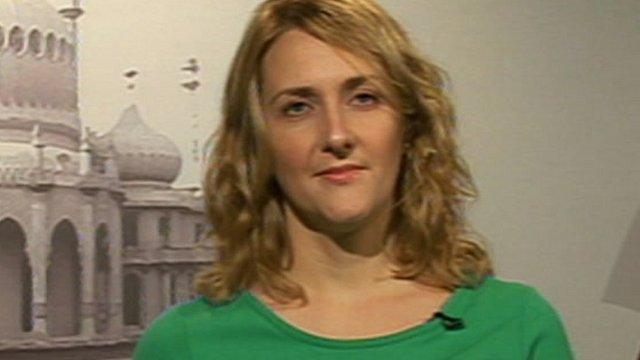Pregnant women with severe sickness ‘not told of treatments’
- Published
- comments

Two-thirds of women with extreme sickness in pregnancy are not given enough information or the drugs to treat it, charities say.
In a survey of nearly 400 women with hyperemesis gravidarum (HG), half also said accessing care was difficult.
The illness is so bad for some that 1,000 wanted pregnancies are terminated each year, the Midirs journal reported.
But better treatment for the condition - which the Duchess of Cambridge had - was reported in specialist units.
Jess Lowe says the care she received stopped her terminating her pregnancy.
She describes her first pregnancy with HG as "very difficult - 10 times worse than a sickness bug" - but her second pregnancy as "absolutely horrific".
"I felt like I was dying," she says.
"The sickness started early in the pregnancy, and it was unbearable.
"I was constantly heaving and retching.
"I couldn't keep anything down - even water and ice."

Jess Lowe had extreme pregnancy sickness with both her children
She simply stopped eating and began to lose a lot of weight.
It got to the point where she couldn't even get out of bed.
Getting treatment at the early pregnancy unit at Great Western hospital in Swindon was the turning point.
A reassuring early scan of her baby was carried out, and she was given intravenous fluids to rehydrate her body, followed by anti-emetic drugs to prevent vomiting.
"As a result I was able to care for my daughter who was three at the time," she says.
"It still wasn't easy.
"I was depressed and lonely and didn't bond with my growing bump, but I got through it."
The charity Pregnancy Sickness Support, which carried out the research with Plymouth University, said women were often misled about the risks of taking certain drugs to treat HG, which were actually safe.
The charity is calling for more day units for women with HG, which affects about 10,000 women a year, where they can receive specialist care from trained staff and avoid long hospital stays.
This is particularly important for women who have other children at home.
The survey found that women treated in these units were more satisfied with how much staff knew about the condition and the information they provided about it.

The Duchess of Cambridge cancelled official engagements when she was sick
In the survey, women were four times more likely to be treated in hospital than in a specialist unit.
There are 22 day units, external in the UK.
Lead researcher Caitlin Dean, who chairs Pregnancy Sickness Support, said improving the knowledge and awareness of doctors and nurses of HG would make a massive difference to women.
"Women want staff not to doubt them if they say they are suffering," she said.
"They want basic, accurate information on medication, and they want healthcare professionals to treat them with dignity and respect."
Join the debate on our Facebook page, external.
- Published8 September 2014

- Published8 September 2014

- Published4 December 2012

- Published4 December 2012
